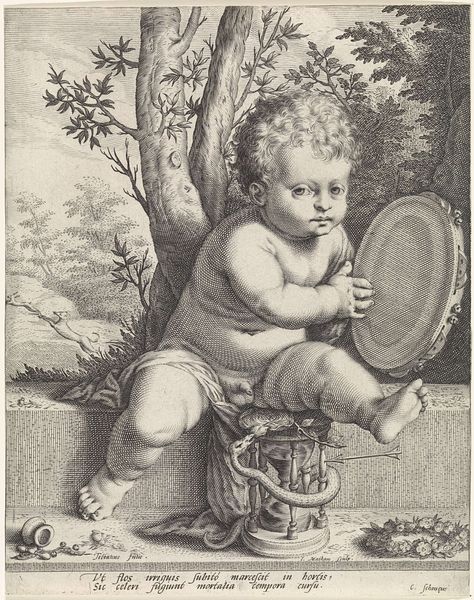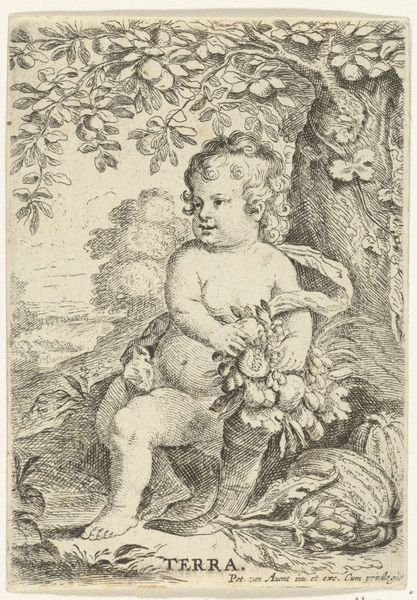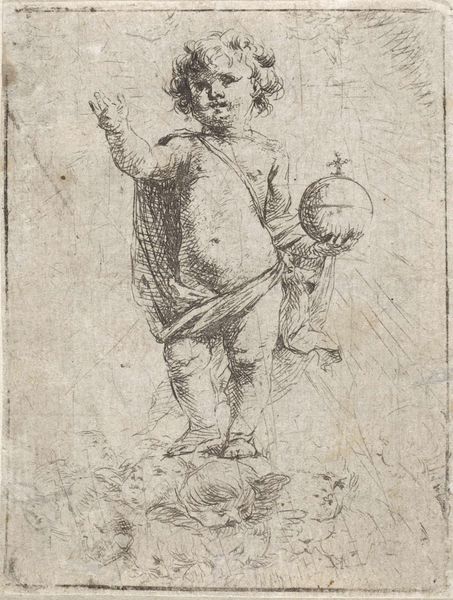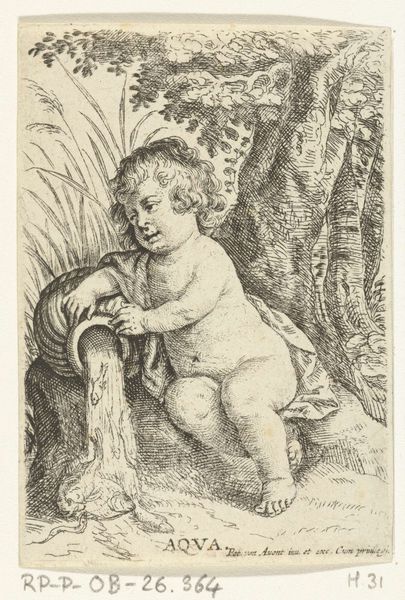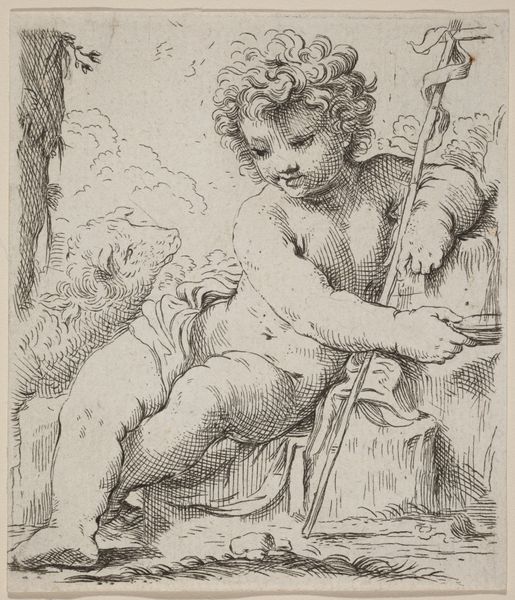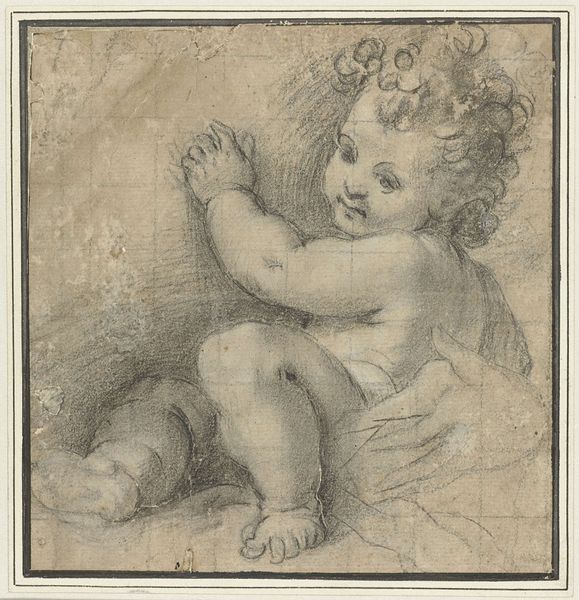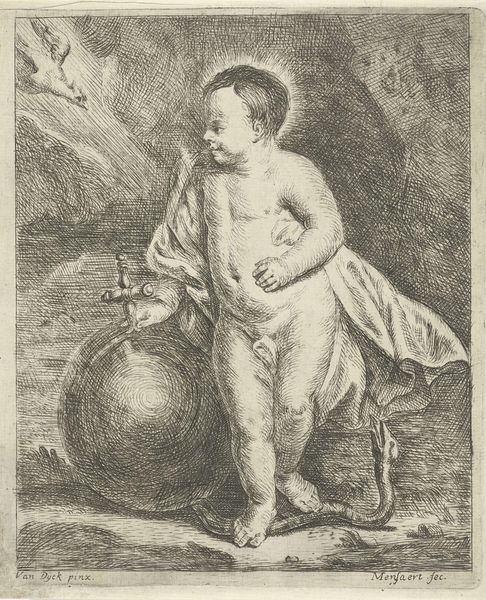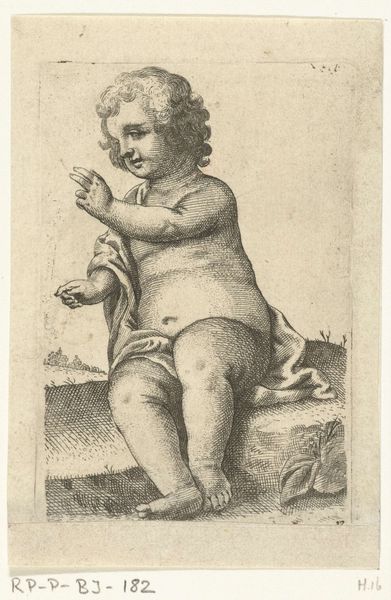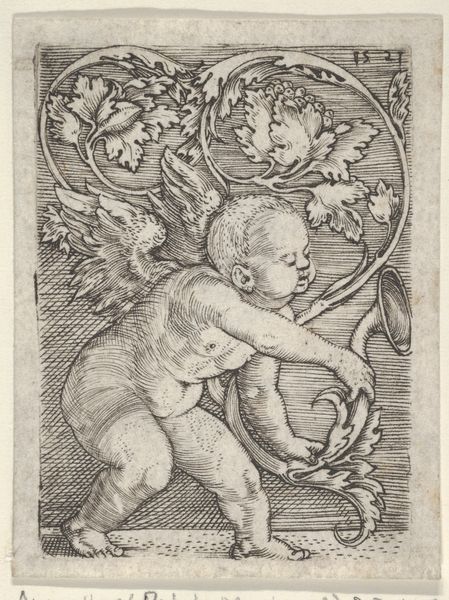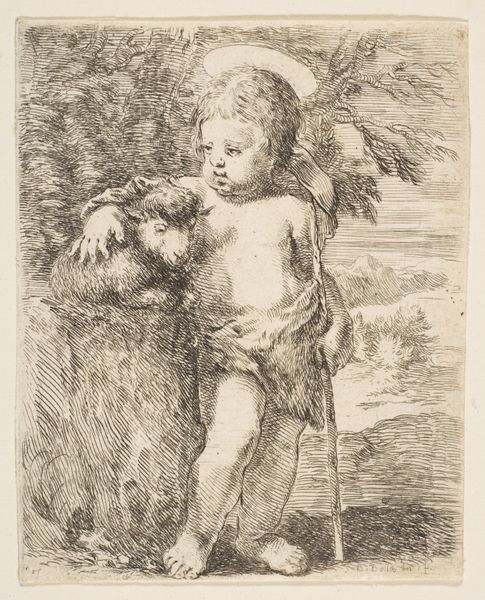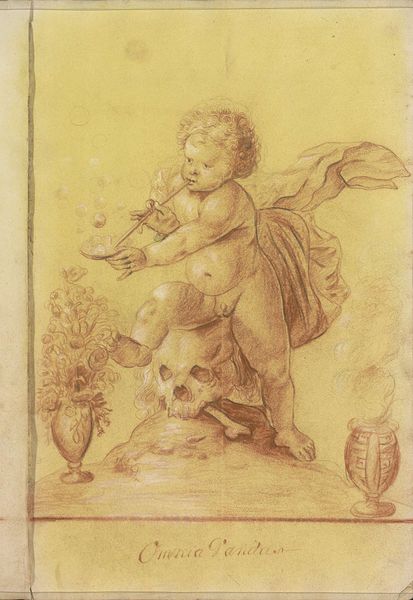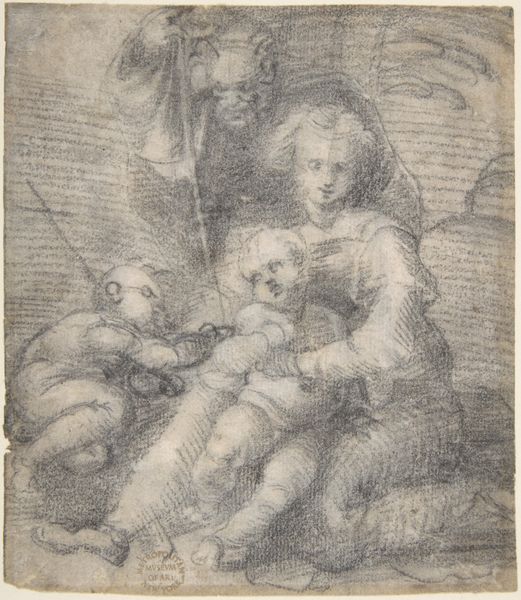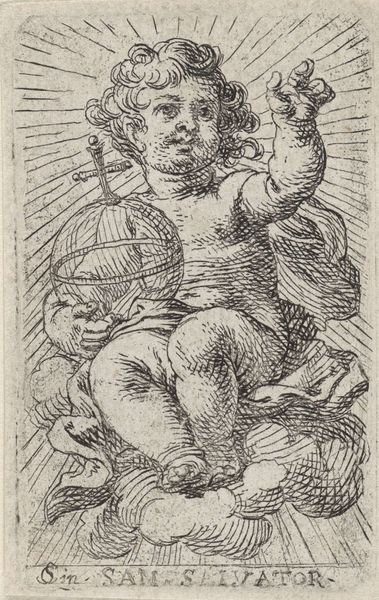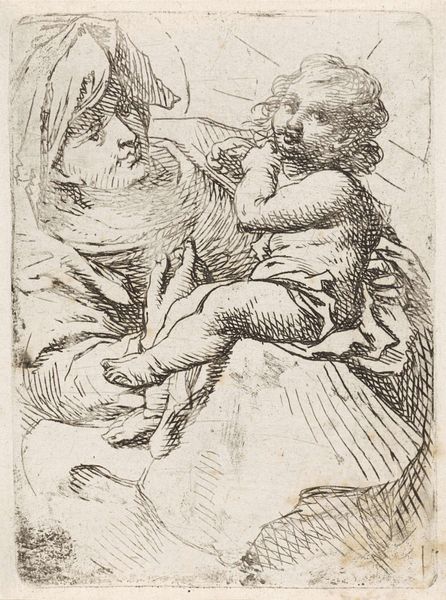
Dimensions: height 283 mm, width 209 mm
Copyright: Rijks Museum: Open Domain
Jordanus Hoorn made this drawing of a boy with a tambourine and hourglass in the late eighteenth or early nineteenth century. The hourglass points us to the passing of time. At first glance this looks like a straightforward memento mori image, a reminder of the brevity of life. But what does it mean in its Dutch context? The Dutch Republic was a powerful economic force. But the tide was turning in the eighteenth century, and the Dutch Golden Age was coming to an end. The Dutch were increasingly preoccupied with their place in history and the culture of the time was concerned with the brevity of life and the transience of worldly goods. Images such as this can be seen to express a sense of anxiety over the rise and fall of nations. We might look at period literature and political writing to understand the cultural mood and discover more about the social function of images like these.
Comments
No comments
Be the first to comment and join the conversation on the ultimate creative platform.
